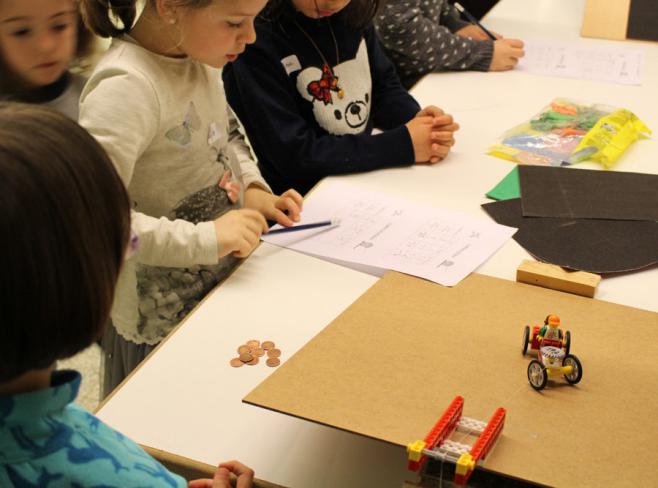In this last stage of botSTEM project, we have carried out a review of all the intellectual outputs that we have developed during these two years. Two years that have allowed botSTEM to create collaboration networks that will surely go beyond this project and learn more about the reality of education in science, technology and robotics in Europe.
One of the main objectives of the project initially defined was to contribute to the development of scientific-technological vocations for two fundamental reasons:
- The limited choice of professional careers related to science and technology.
- The lack of interest and basic knowledge of citizens about science and technology.
To overcome this complex situation, one of the most effective lines of action seems to be related to the way these disciplines are taught in school. It is time to teach science and technology from contextualized approaches that help children to know and respond to the phenomena that occur around them, and leave behind the reductionist vision of science that sees this discipline in isolation. Following these premises, the research points to the suitability of using STEM teaching approaches in which science, technology, engineering and mathematics are integrated as a cohesive entity. BotSTEM project also aims to introduce robotics and programming to improve and reinforce these STEM teaching-learning processes.

All the results obtained from botSTEM intellectual outputs, as well as, the literature from educational research, allow botSTEM project to generate an idea of the possible action measures that can be taken to contribute to the development of scientific-technological vocations; measures that undoubtedly go through an active collaboration between the different groups that make up the educational community (students, teachers, head masters, policy makers, etc.). Reaching agreements in policy implementation and regulatory frameworks with educational administrations to implement integrated STEM education in the early childhood stage and, also to implement active pedagogies, seems to be crucial.
This thorough analysis has allowed botSTEM project establish as a recommendation, among others, the need to support and encourage proposals for integrated STEM projects and practices in early childhood education and the first years of primary education, as well as those related to the use of robotics and programming as a means of improving teaching-learning processes, offering, with pedagogical criteria, the appropriate teaching resources according to the needs of the schools; and to promote collaboration channels between pre-primary and primary school teachers and university students, to develop joint action programs that allow applying didactic sequences based on STEM teaching approaches, as well as other initiatives that work on the development of scientific-technological competences.
In this report, although the recommendations are specifically directed at three groups: universities, political decision makers and pre and primary school teachers, in general they seek to promote active collaboration between each of these groups, knowing that collective actions are more powerful than individual ones.

Visits: 784
